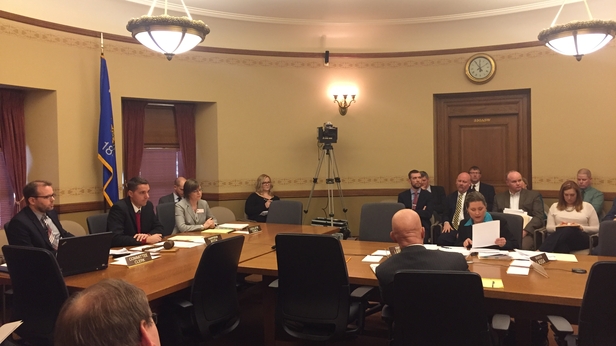
The legislation would bar applicants from the unemployment insurance program for seven years if they intentionally defraud the system twice
MacIver News Service | January 5, 2015
[Madison, Wisc…] A bill addressing fraud in the Unemployment Insurance (UI) system passed the Senate Committee on Workforce Development, Public Works, and Military Affairs on a 3-2 party line vote.If passed, Assembly Bill 212 (AB 212) would render individuals ineligible for UI benefits for seven years if they are found to have intentionally concealed or misrepresented information when applying for benefits. Rep. Samantha Kerkman (R-Salem) introduced the bill after a December 2014 audit found that $86.3 million in overpayment dollars were sent to individuals filing fraudulent claims.
Under current law, individuals who are found to intentionally file fraudulent claims can be subject to criminal charges, but can still reapply for UI benefits in the future.
At the Assembly public hearing for AB 212, lead co-sponsor Kerkman testified that the audit discovered that 67,000 fraudulent payments were made to 44,488 unique social security numbers – including 14,543 social security numbers involved in two or more instances or fraud during the three-year audit period.
Despite those shocking numbers, Kerkman said that only three individuals have been charged with fraud in the last year.
• $86.3 Million in intentional unemployment fraud during a three-year audit period
• 67,000 fraudulent payments made to 44,488 unique social security numbers
• 14,453 social security numbers involved in two or more instances of fraud
The Senate committee debated the bill for just over an hour with Sen. Julie Lassa (D-Stevens Point) offering four amendments and driving most of the discussion. All four amendments were rejected on party line votes.
One notable amendment would have required the Department of Workforce Development (DWD) to reword UI claim certification questions, which the federal Department of Labor has deemed too complex and confusing. Under the amendment, Wisconsin’s DWD would implement the rest of the bill only after the UI council approved the revisions to the weekly application questions.
Senate executive session on .@samanthakerkman's #UnemploymentInsurance reform bill pic.twitter.com/wWEFJHrpkF
— MacIver Institute (@MacIverWisc) January 5, 2016
“If we really want to get serious about cracking down on fraud, making sure that people are not taking advantage of a program and receiving money that they’re not entitled to, then we should make sure that the questions that they are being asked are clear-cut, easy to understand so that they can provide the program with the correct answers,” Lassa said. “So that way we can focus our resources on those individuals who are really intent on defrauding the system and making sure that we catch them.”
Committee Chairman Sen. Roger Roth (R-Appleton) said that the UI council is already working on revising the questions, rendering Lassa’s amendment unnecessary.
“The advisory council currently is in the process of reviewing these questions and revising them so I think, Senator, what you’re looking to do, what you’re looking to accomplish, is being accomplished now,” Roth said.
Lassa and Sen. Chris Larson (D-Milwaukee) were also concerned about the bill going after individuals who unintentionally defraud the system. Unintentional fraud makes up about 85 percent of the fraud identified in LAB’s 2014 audit.
Committee Chairman Roth asserted that the bill only addresses intentional fraud, and stressed that the 9.5 percent who intentionally defraud the system make up a small percentage of fraud but cost the state dearly.
“This bill goes after not the 85 percent of individuals that DWD already identified as unintentionally defrauding the system, this goes after the 9.5 percent of individuals that they determined were intentionally defrauding to a dollar amount on that fraud – that 10 percent is $86 million,” Roth said. “That’s money that comes out of the UI trust fund, that’s money paid for by businesses…this bill is a very pro-business bill, a pro-worker bill.”
Now that it has passed the Assembly and gone through the Senate committee process, AB 212 will move to the Senate floor for debate. The Senate is expected to meet on January 12 and 19. If AB 212 passes the Senate, its next stop will be Gov. Walker’s desk.
AB212 passes Senate Cmte on Workforce Development, Public Works, and Military Affairs on a 3-2 vote. Next stop will be the Senate floor #UI
— MacIver Institute (@MacIverWisc) January 5, 2016